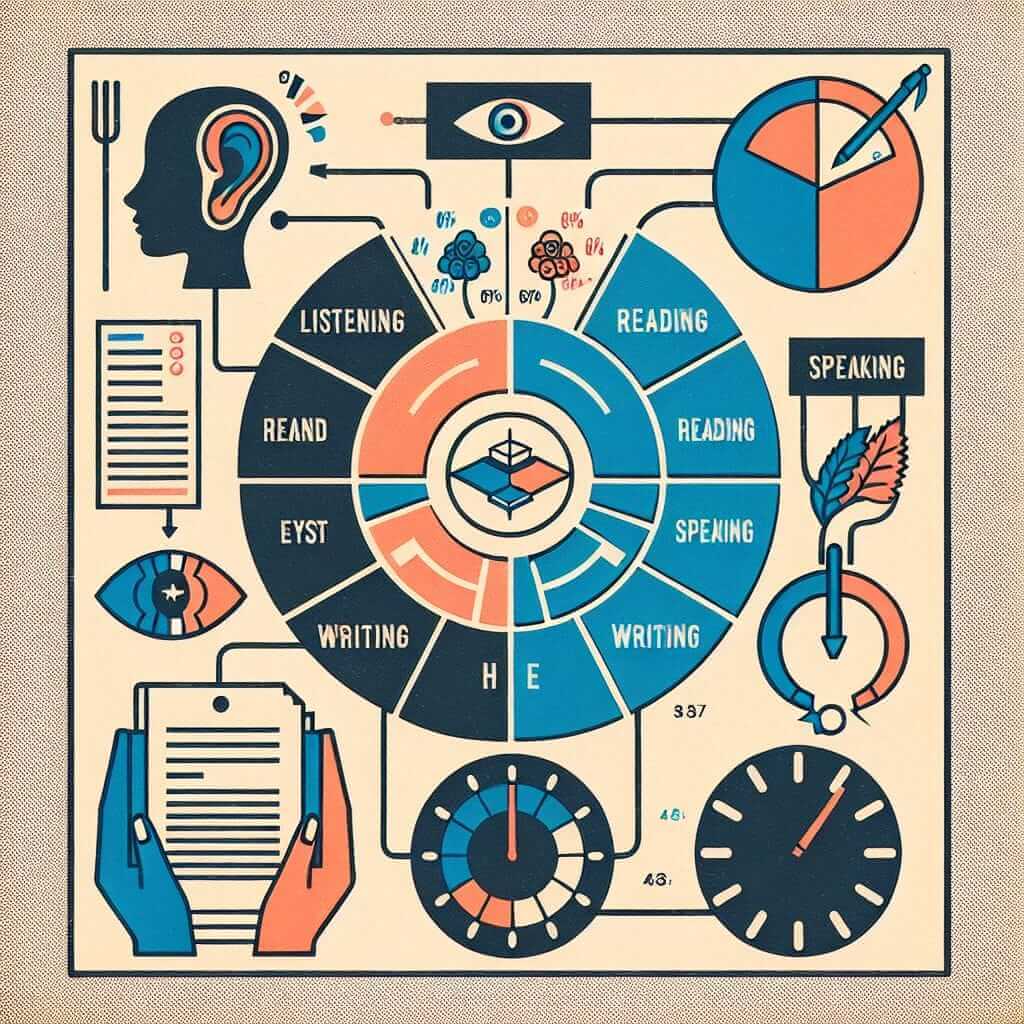The IELTS, or International English Language Testing System, is a globally recognized English proficiency test for non-native speakers. Whether you’re aiming for higher education, professional registration, or visa applications, understanding “What Is Ielts Examination” is crucial to your success. This comprehensive guide, crafted from my 20 years of experience teaching IELTS, will delve into the core aspects of this exam, equipping you with the knowledge to excel.
Understanding the IELTS Examination
The IELTS exam assesses your ability to use the English language across four key skills:
1. Listening:
- Format: This section comprises 4 sections, with 10 questions each, totaling 40 questions. You’ll encounter a variety of recordings, from conversations to lectures, and answer questions based on what you hear.
- Skills Assessed: Your ability to understand different accents, comprehend main ideas and specific details, and follow the development of an argument.
2. Reading:
- Format: This section presents 3 long reading passages from various sources like books, journals, and newspapers. You’ll answer 40 questions in total, testing your comprehension skills.
- Skills Assessed: Your ability to understand the main idea, find specific information, identify the writer’s opinion, and follow the logical structure of a passage.
3. Writing:
- Format: This section consists of two tasks. Task 1 requires describing visual information, often a graph or chart, in 150 words. Task 2 is an essay writing task of 250 words, requiring you to present an argument based on a given topic.
- Skills Assessed: Your ability to present information clearly and coherently, use a range of vocabulary and grammar accurately, and develop and structure an argument effectively.
4. Speaking:
- Format: This section involves a face-to-face interview with a certified examiner. You’ll engage in a three-part conversation, discussing familiar topics, presenting a short talk on a given topic, and engaging in a deeper discussion related to the talk.
- Skills Assessed: Your fluency and coherence, lexical resource (vocabulary), grammatical range and accuracy, and pronunciation.
 IELTS Exam Format
IELTS Exam Format
Why is the IELTS Exam Important?
Understanding “what is IELTS examination” goes beyond its format; it’s about recognizing its significance:
- Global Recognition: IELTS scores are accepted by over 11,000 organizations worldwide, including universities, employers, and immigration agencies.
- Academic and Professional Opportunities: A good IELTS score can open doors to prestigious universities, enhance your career prospects, and facilitate global mobility.
- Personal Development: Preparing for the IELTS exam can significantly improve your overall English language skills, boosting your confidence in academic and professional settings.
Tips for IELTS Success
- Start Early: Don’t wait until the last minute. Begin your preparation well in advance to allow ample time for each section.
- Familiarize Yourself with the Format: Understanding the exam structure, question types, and time limits is crucial for effective preparation.
- Practice Regularly: Consistent practice is key. Use official IELTS practice materials and sample tests to simulate exam conditions.
- Focus on Your Weaknesses: Identify areas where you struggle and dedicate extra time to improve those skills.
- Seek Professional Guidance: Consider enrolling in an IELTS preparation course or seeking feedback from an experienced IELTS tutor.
Conclusion
Understanding “what is IELTS examination” is the first step towards achieving your desired score. Remember, the IELTS is not just a test; it’s an opportunity to showcase your English language proficiency and unlock a world of possibilities. With dedicated effort and strategic preparation, success in the IELTS is within your reach.
